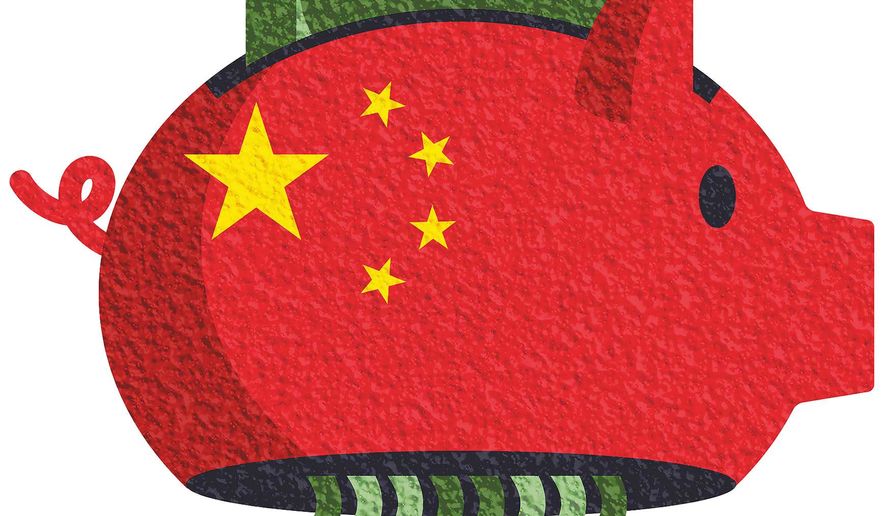OPINION:
The current craze among the cool crowd is making sure that corporations commit to certain environmental, social and governance criteria. These criteria, as one would expect from the very language, are mostly set by people who despise free markets and profit-making companies.
Unfortunately, the Biden administration’s Securities and Exchange Commission is playing right along with the band and has begun pressing companies on whether they have gotten religion on all sorts of things from climate change to environmental justice to political giving.
To stay within the boundaries of the Securities and Exchange Act, the SEC has to pretend that such considerations are “material” to a company’s financial performance and risk.
Of course, if shareholders already believe a company’s policies on climate, racial politics or other issues are “material,” they can pass a proxy resolution mandating more disclosure. But that is not nearly enough for the SEC, which wants companies to go ahead and disclose as material risks anything that might upset any shareholder with a delicate sense of aggrievance.
That sounds like an interesting idea. Let’s take it for a spin with a slightly different set of facts.
How about if the SEC addressed a legitimate, ongoing and substantial material risk — the exposure of American companies and American investors to the Chinese Communist Party (CCP)? Does that exposure raise any concerns?
We don’t know. The SEC has not felt compelled to identify exposure to the murderous and internationally disruptive regime in Beijing as material.
As far as the SEC — and by extension the Biden administration — is concerned, American companies are required to be woke at home, but are free to do business with the CCP, a regime built on torture, murder, rape, slavery and compulsory abortion.
That is a problem. As China’s competition with America intensifies, financial markets have become a battleground. The Chinese communists exploit U.S. capital markets to fund China’s rise while imposing heavy costs on American investors, our economy and the integrity of our capital markets.
Should the Chinese communists be allowed to access the U.S. capital markets to fund a military, cyber and geopolitical strategy that undermines the economic and national security of the United States?
Most Americans would say “no.”
Let’s look at a couple of specifics.
Registered investment funds in the U.S. that hold Chinese government bonds or track an index that includes such bonds help transfer savings from America’s working families, military service members, pensioners, and retirees directly to the Chinese communists.
Since funds that flow to the CCP cannot be separated from Chinese industry, one can only assume that this money goes to underwrite everything the CCP touches, including factories that use forced labor, re-education camps for the Uyghurs, the destruction of the environment, the rise of its military, and a cyber-army that relentlessly attacks the U.S.
The SEC should at least examine whether registered investment funds (mutual funds and exchange traded funds) that own these bonds or track an index that includes them should be available for sale in the U.S.
Additionally, investors have no insight into whether Chinese companies are making or losing money because China regularly asserts a national security privilege to prevent routine audits from being done. This intentionally keeps investors in the dark and subjects them to a risk of fraud.
Despite warnings from the Trump SEC that investing in Chinese companies may involve a substantially greater risk that their disclosures will be misleading and, in the event of investor harm, provide substantially less access to recourse, many of these companies are still listed on U.S. exchanges.
Until more de-listings occur, America’s small investors, labor unions, pension funds and retirement plans will continue to be exposed to this risk.
Finally, passive index funds and index providers are allowed to direct American investor dollars into Chinese companies by including them in international or emerging market indices. Inclusion in an index can lead to billions of dollars being steered to Chinese businesses.
Investors often have no idea that by investing in an index fund, they are sending their savings to Chinese companies that avoid basic disclosure, financial reporting and governance standards or are controlled by the CCP.
Time for the SEC to do its actual job. The commission should deregister every Chinese company that doesn’t meet governance, disclosure, audit and financial reporting standards. It should prevent index funds from steering American investor savings into financially questionable Chinese companies. It should force index funds to remove and stock exchanges to delist any Chinese company that is on a sanctions list.
It’s bad enough that companies such as Facebook and Coca-Cola are hypocrites that tut-tut the American right while turning a blind eye to their own very real complicity in the savagery and barbarism of communist China.
The SEC should be better. It needs to focus on legitimately material threats that affect actual investors. It can start by taking a hard look at China.
• Michael McKenna, a columnist for The Washington Times, is the president of MWR Strategies. He was most recently a deputy assistant to President Trump and deputy director of the Office of Legislative Affairs at the White House.




Please read our comment policy before commenting.